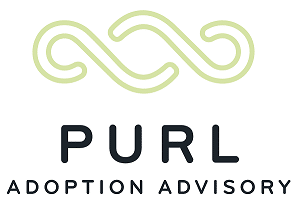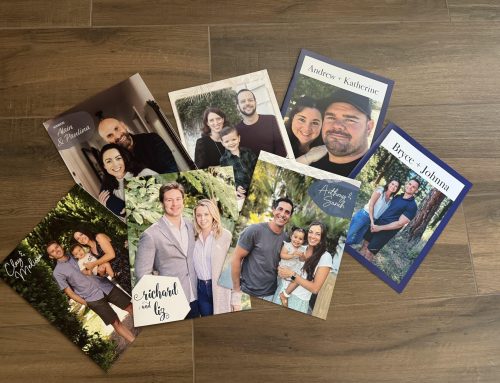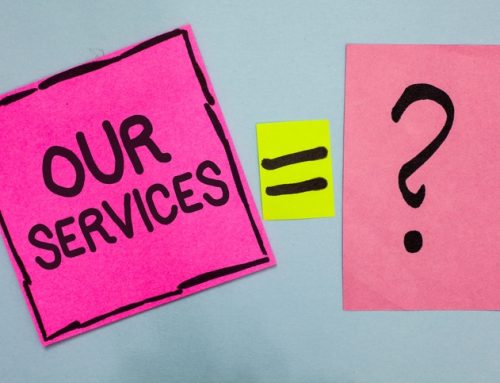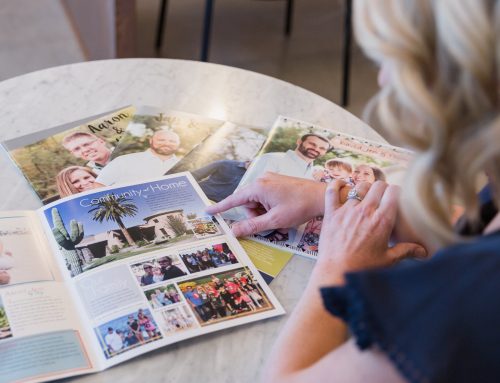
The domestic adoption process is so awkward in that you are essentially saying yes or no to a child. Sometimes you are doing it just by setting preferences in your adoption that exclude a particular adoption opportunity, but sometimes you’re actually reviewing a summary of an adoption opportunity and saying yes or no as to whether to present your family profile to an expectant family considering adoption for that child.
When prospective adoptive parents start to consider their adoption preferences, many have no idea what they should say when adoption professionals ask what types of circumstances they would consider. Here are just a few of the things you should research and educate yourself on as you determine your adoption preferences, as well as some resources for helping you navigate these decisions. As an adoption advisor, these are some of the things I help my Purl families decide during their adoption journey.
Drug/Alcohol Exposure In Utero
Likely in part due to our country’s opioid and other drug crises, we are seeing more and more adoption opportunities where there is some type of drug or alcohol exposure in utero, particularly in the White adoption opportunities we see. The impact of the exposure on the fetus varies so much child to child, as does the amount of use and the timing of the use during a child’s development. I also find that doctor’s opinions about drug exposure in utero tends to vary significantly and wouldn’t be surprised to get ten different answers from ten different doctors about which drugs are more problematic to the fetus during pregnancy. Here are three sources I have found helpful to recommend for my Purl families considering their adoption preferences at the beginning of their journey or for considering particular adoption opportunities:
-
Adoption Medicine Clinic: The Adoption Medicine Clinic at the University of Minnesota is a global leader in adoption medicine, research, education and advocacy. They provide pre-adoption consultations, medical reviews, travel counseling, and comprehensive post-adoption care.
-
Hope in Parenting: A pediatric RN and mom through adoption five times has a company called Hope in Parenting that helps families through adoption (and families formed biologically) with subscription based parenting guidance and support through the child’s phases of development. She also offers consultations pre-adoption to help with adoption preferences both from a drug exposure and medical perspective. The founder, Amy Stewart, was actually the teacher in a parenting group I (Katie) joined when my girls were babies and she was so helpful in my parenting and adoption journey.
-
MotherToBaby: This free resource provides information and fact sheets about various drug and alcohol exposures in utero. Teratogen Information Specialists at MotherToBaby are available to review any specific adoptive scenarios you are presented with, at no cost to you. Call them at 866-626-6847 or you can chat or contact them via email.
Openness to Transracial Adoption
Many families are open to adopting a child of a different race or culture, but don’t understand the extra layer that this adds to their adoption experience. To prepare yourself for this added dimension in your adoption, we recommend that all prospective adoptive families considering transracial adoption educate themselves and learn from others, particularly from the perspective of the adult transracial adoptees who have experienced it firsthand. There are quite a few who are social influencers or who have otherwise started businesses helping adoptive families prepare for transracial adoptions that I recommend prospective adoptive parents follow and learn from. Some of the things you hear/learn may make you uncomfortable, but it can be very helpful to determine if your family is well-suited to adopt a child of another race/culture as well as help you better prepare for the circumstances. Here are some of our favorite resources about transracial adoption:
-
Transracial Adoptee Torie DiMartile (Wreckage and Wonder blog and other resources), be sure to check out the blog post she wrote on this subject for Purl here.
-
Be the Bridge (multiple resources for transracial adoptees in this blog).
-
Adoptees On Podcast and YouTube series
-
What White Parents Should Know about Transracial Adoption: An Adoptee’s Perspective on Its History, Nuances, and Practices by Melissa Guida-Richards
Types of Openness in Adoption
Many people start their adoption journey believing they want a closed or only semi-open adoption but, after much research, determine that they want a much more open adoption, similar to my own personal experience discussed briefly here. It can be helpful to learn more from the perspectives of birth mothers as well as the benefits of openness in adoption on the child through adoption. Here are some of my favorite resources as you consider open adoption:
-
Making Room in Our Hearts: Keeping Family Ties through Open Adoption (book by by Micky Duxbury)
-
The Open Hearted Way to Open Adoption: Helping Your Child Grow up Whole (book by by Lori Holden and Crystal Hass)
-
Child Welfare Information Gateway has some additional resources about Ongoing Contact With Birth Families in Adoption.
We hope these resources help you to begin your adoption journey more educated and more prepared. Keep in mind all Purl Families get extensive education on these topics and more as part of our monthly group coaching sessions, where we bring in guest speakers to speak on these areas and other areas in adoption. If you feel you need more support in your own adoption journey, we hope you’ll complete this form to set up a free consultation!

The domestic adoption process is so awkward in that you are essentially saying yes or no to a child. Sometimes you are doing it just by setting preferences in your adoption that exclude a particular adoption opportunity, but sometimes you’re actually reviewing a summary of an adoption opportunity and saying yes or no as to whether to present your family profile to an expectant family considering adoption for that child.
When prospective adoptive parents start to consider their adoption preferences, many have no idea what they should say when adoption professionals ask what types of circumstances they would consider. Here are just a few of the things you should research and educate yourself on as you determine your adoption preferences, as well as some resources for helping you navigate these decisions. As an adoption advisor, these are some of the things I help my Purl families decide during their adoption journey.
Drug/Alcohol Exposure In Utero
Likely in part due to our country’s opioid and other drug crises, we are seeing more and more adoption opportunities where there is some type of drug or alcohol exposure in utero, particularly in the White adoption opportunities we see. The impact of the exposure on the fetus varies so much child to child, as does the amount of use and the timing of the use during a child’s development. I also find that doctor’s opinions about drug exposure in utero tends to vary significantly and wouldn’t be surprised to get ten different answers from ten different doctors about which drugs are more problematic to the fetus during pregnancy. Here are three sources I have found helpful to recommend for my Purl families considering their adoption preferences at the beginning of their journey or for considering particular adoption opportunities:
-
Adoption Medicine Clinic: The Adoption Medicine Clinic at the University of Minnesota is a global leader in adoption medicine, research, education and advocacy. They provide pre-adoption consultations, medical reviews, travel counseling, and comprehensive post-adoption care.
-
Hope in Parenting: A pediatric RN and mom through adoption five times has a company called Hope in Parenting that helps families through adoption (and families formed biologically) with subscription based parenting guidance and support through the child’s phases of development. She also offers consultations pre-adoption to help with adoption preferences both from a drug exposure and medical perspective. The founder, Amy Stewart, was actually the teacher in a parenting group I (Katie) joined when my girls were babies and she was so helpful in my parenting and adoption journey.
-
MotherToBaby: This free resource provides information and fact sheets about various drug and alcohol exposures in utero. Teratogen Information Specialists at MotherToBaby are available to review any specific adoptive scenarios you are presented with, at no cost to you. Call them at 866-626-6847 or you can chat or contact them via email.
Openness to Transracial Adoption
Many families are open to adopting a child of a different race or culture, but don’t understand the extra layer that this adds to their adoption experience. To prepare yourself for this added dimension in your adoption, we recommend that all prospective adoptive families considering transracial adoption educate themselves and learn from others, particularly from the perspective of the adult transracial adoptees who have experienced it firsthand. There are quite a few who are social influencers or who have otherwise started businesses helping adoptive families prepare for transracial adoptions that I recommend prospective adoptive parents follow and learn from. Some of the things you hear/learn may make you uncomfortable, but it can be very helpful to determine if your family is well-suited to adopt a child of another race/culture as well as help you better prepare for the circumstances. Here are some of our favorite resources about transracial adoption:
-
Transracial Adoptee Torie DiMartile (Wreckage and Wonder blog and other resources), be sure to check out the blog post she wrote on this subject for Purl here.
-
Be the Bridge (multiple resources for transracial adoptees in this blog).
-
Adoptees On Podcast and YouTube series
-
What White Parents Should Know about Transracial Adoption: An Adoptee’s Perspective on Its History, Nuances, and Practices by Melissa Guida-Richards
Types of Openness in Adoption
Many people start their adoption journey believing they want a closed or only semi-open adoption but, after much research, determine that they want a much more open adoption, similar to my own personal experience discussed briefly here. It can be helpful to learn more from the perspectives of birth mothers as well as the benefits of openness in adoption on the child through adoption. Here are some of my favorite resources as you consider open adoption:
-
Making Room in Our Hearts: Keeping Family Ties through Open Adoption (book by by Micky Duxbury)
-
The Open Hearted Way to Open Adoption: Helping Your Child Grow up Whole (book by by Lori Holden and Crystal Hass)
-
Child Welfare Information Gateway has some additional resources about Ongoing Contact With Birth Families in Adoption.
We hope these resources help you to begin your adoption journey more educated and more prepared. Keep in mind all Purl Families get extensive education on these topics and more as part of our monthly group coaching sessions, where we bring in guest speakers to speak on these areas and other areas in adoption. If you feel you need more support in your own adoption journey, we hope you’ll complete this form to set up a free consultation!



